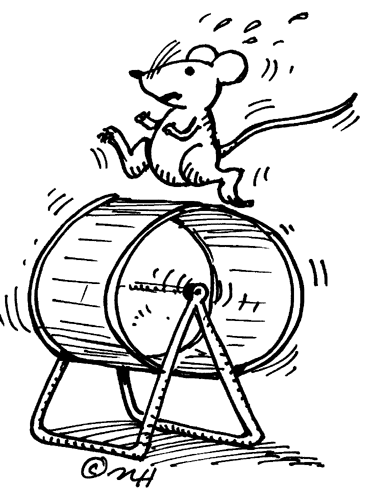There are myriad facets to managing your time well. And it’s easy to become overwhelmed by the multitude of techniques and tactics that are espoused, the apps that are available, and the well-intentioned advice from others. However, if you want to make real progress, it’s important to understand, and get comfortable with, the biggest myth in time management: The idea that you can get it all done!
You are a limited resource and, try as you may, it’s likely impossible to accomplish everything you’d like to or that’s being asked of you. Even if you can do so for a period of time, doing so on an ongoing and consistent basis is highly unlikely, not to mention exhausting.
If you are able to accept that you can’t get everything done – then what? Prioritize!
In our drive to get things done, it’s common to focus on being efficient. And that’s ok…but only after you’ve identified what’s most important to you.
Efficiency is about doing things right. About making things repeatable, controllable, scalable, and doing things in the right way. It’s about the how.
Effectiveness, on the other hand, is about doing the right things. It’s about the what. And it requires having identified what those right things are. Doing the right things (being effective) implies a goal, a direction, an objective, a vision, a path, a reach.
We all need some balance of both efficiency and effectiveness, but the order of the two is critical, because too often, we get hung up on doing the wrong things correctly.
Tim Ferriss, renowned author and entrepreneur, has suggested a similar sentiment, that we should focus on being productive instead of busy.
And a popular quote contrasts the bee and the mosquito by saying, “It is not how busy you are, but why you are busy – the bee is praised, the mosquito is swatted.” The bee has a worthy purpose while the mosquito is merely flitting around.
Truths About Time
- Time is expensive. The 80/20 rule would say that 80% of our day is spent on those things or those people that only bring us 20% of our results.
- Time is perishable. It cannot be saved or banked for later use.
- Time is irreplaceable. We never make time back once it’s gone.
- Nobody can manage time. But you can manage those things that take up your time.
- Time is a priority. You have enough time for anything in the world, so long as it ranks high enough among your priorities.
It’s not about getting everything done, it’s about getting the right things done.
But with all that you would like to get done, how do you prioritize in a way that’s most beneficial for you? To identify your “right things”?
We’ll explore that next time.
In the meantime, check this post out regarding some additional time management myths.

